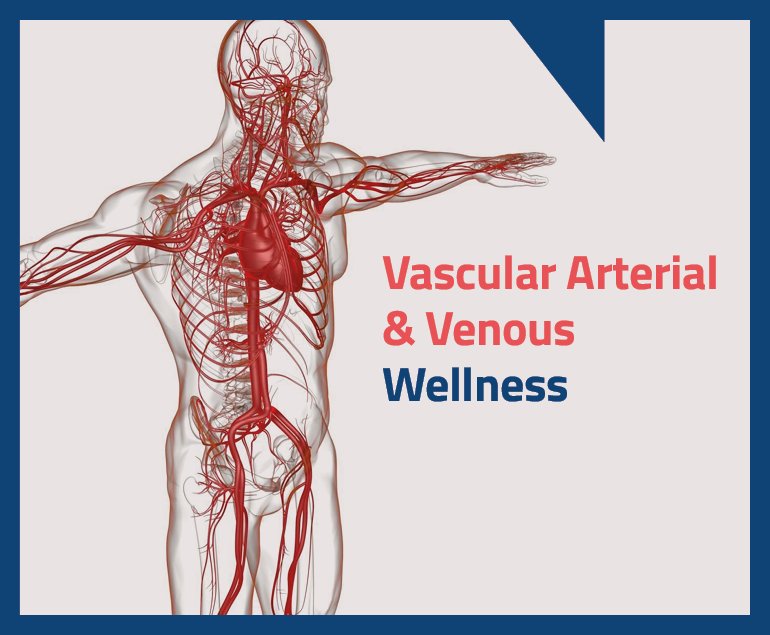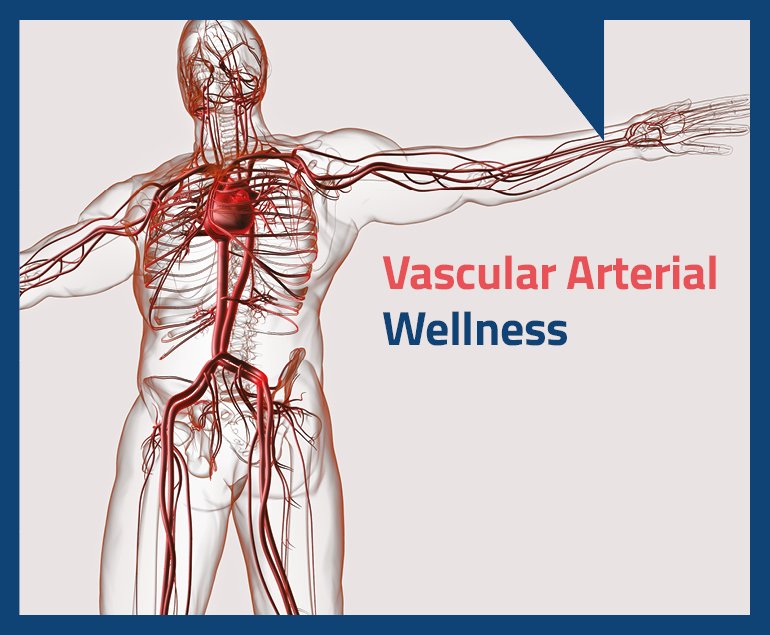Overview of Cardiothoracic Surgery at Northern Heart Hospital
Cardiothoracic surgery encompasses the surgical treatment of diseases affecting organs within the chest, primarily focusing on conditions related to the heart and lungs, including procedures such as heart bypass and open-heart surgeries. Northern Heart Hospital provides top-notch medical care with cutting-edge equipment and a collaborative team of cardiothoracic surgeons, cardiologists, nurses, and aftercare specialists. Given the rising prevalence of heart disease due to lifestyle factors like sedentary behavior, poor diets, and smoking, coupled with conditions like diabetes and hot climates, many individuals develop coronary artery issues in their mid-forties. This field represents the latest advancement in medical surgery, combining meticulous diagnosis and treatment approaches to address various conditions, including heart valve disease, coronary artery disease, lung cancer, and others. Each patient receives personalised attention from a dedicated team of heart medical professionals at Northern Heart Hospital, ensuring the highest level of care.
Experienced Cardiothoracic Surgeons in the region at Northern Heart Hospital
Prof. Dato' Dr. Abu Yamin Bin Khamis
Prof. Dato’ Dr. Hj Basheer Ahamed Bin Abdul Kareem (BCN, DSPN)
Discover top-notch cardiac care with Northern Heart’s skilled Cardiac Surgeons. Schedule an appointment today!
Cardiothoracic surgeons address a range of conditions including aortic injury from trauma, atrial fibrillation, congestive heart failure (heart attack), esophageal cancer, left ventricular aneurysm, lung cancers, mediastinal tumors, thoracic aortic aneurysm, tracheal stenosis, valvular insufficiency, and valvular stenosis.
Symptoms of a heart attack can vary based on the specific condition but may involve:
- Chest Pain or Discomfort
Persistent or severe chest pain, often indicative of coronary artery disease or heart attack. - Shortness of Breath
Difficulty breathing, especially during physical activity or when lying down, may signal heart failure or valve issues. - Palpitations
Irregular or rapid heartbeats, which could suggest arrhythmias needing surgical correction. - Dizziness or Fainting
Frequent episodes of dizziness or fainting might point to severe arrhythmias or heart valve problems. - Swelling (Edema)
Fluid buildup in the legs, ankles, or feet can be a sign of heart failure. - Fatigue
Unexplained, persistent fatigue that affects daily activities could be related to heart conditions requiring surgical treatment. - Nausea or Vomiting
Feeling sick to the stomach or vomiting, often associated with heart attack symptoms. - Sweating
Excessive sweating, especially cold sweats, can be a sign of a heart attack. - Pain in other areas of the body
Pain that radiates to the shoulders, arms, back, neck, jaw, or stomach, often associated with heart attacks.
If you are experiencing these symptoms, consulting a cardiac surgeon at Northern Heart Hospital is essential as they specialise in managing heart-related diagnoses and surgeries and ensuring patient safety during these complex procedures.
At Northern Heart Hospital, our dedicated team of Cardiothoracic Surgeons perform a range of heart surgeries including:
Aortic Surgery
- Aortic Dissection Repair and Replacement
- Aortic Aneurysm Repair and Replacement (Aortic Root, Ascending Aorta, Aortic Arch and Descending Aorta Replacement)
- Personalised External Aortic Root Support (PEARS)
- Thoracic Endovascular Aortic Repair
- Transcatheter Aortic Valve Replacement (TAVR)
Cardiac Bypass Surgery
- Coronary Artery Bypass Grafting (CABG) (Bypass Surgery)
- Minimally Invasive Coronary Artery Bypass Grafting Surgery (MICS)
- Aortic Valve Replacement (AVR)
- Transcatheter Aortic Valve Replacement (TAVR)
- itral Valve Repair and Replacement (MVR)
- Transcatheter Mitral Valve Repair (TMVR)
- Tricuspid Valve Annuloplasty (Repair and Replacement) (TAP)
- Atrial Fibrillation Ablation
- Radiofrequency Ablation
- Left Atrial Appendage Closure
- Cardiac Tumour Removal
- Atrial Septal Defect (ASD) and Patent Foramen Ovale (PFO) Closure
- Ventricular Septal Defect Closure (VSD)
- Pericardiectomy
- Double valve replacement
- Coronary Artery Bypass Grafting & Mitral Valve Replacement/Repair
- Coronary Artery Bypass Grafting & Aortic Valve Replacement/repair
- MIS Mitral entValve Replacement
- MIS Mitral Calve Repair
- MIS Aortic Valve Replacement
- MIS Tricuspid Valve Replacement
- Off pump Coronary Artery Bypass Grafting
- MIDCAB (Minimally Invasive Direct Coronary Artery Bypass)
- Bentall procedure
- Left Atrial Myxoma Excision
- Frozen Elephant Trunk procedure
- Redo Coronary Artery Bypass Grafting
- Redo Mitral Valve Repair and Replacement (MVR)
- Redo Aortic Valve Replacement (AVR)
Thoracic Surgery
- Bronchoscopy
- Mediastinoscopy, Mediastinotomy
- Lung Cancer Resection – Lobectomy, Pneumonectomy
- Lung Tumour Resection
- Thymectomy for Myasthenia Gravis
- Mediastinal Tumour Excision
- Chest Wall Tumour Excision
- Sympathectomy for Hyperhidrosis (Sweaty Hands)
- Pneumothorax Surgery (Bullectomy, Pleurectomy, Pleural Abrasion, Pleurodesis)
- Pleural Effusion Surgery (Pleurodesis)
- Empyema Drainage and Decortication
- Video-Assisted Thoracoscopic (VATS) Surgery
- Non Open Heart surgery
- Chest Reopen Thymectomy
- Sternal Wound Debridement
- Sternal Wire Removal
- Wound debridement limb
- Thoracotomy & decortication
- VATS, Bullectomy and Pleurodesis kiv thoracotomy
- VATS, Decorticationkiv thoracotomy
The main areas of specialisation include cardiac, thoracic, and congenital surgery, each possessing distinct features. While some surgeons may have a combined practice covering thoracic and adult cardiac surgeries, the majority focus on one specific area. Adult cardiac surgery primarily addresses coronary heart disease, although there’s a growing demand for valve surgeries due to an aging population. Thoracic surgery deals with lung, chest wall, esophagus, and diaphragm conditions, often concentrating on the treatment of malignant diseases. Congenital surgery, the most challenging subset, is performed by a select group of highly skilled and specialised surgeons.
Prior to cardiothoracic surgery, patients will undergo screenings at Northern Heart Hospital to accurately diagnose and treat your condition. Several diagnostic tests and screenings are employed to identify and assess cardiothoracic conditions affecting the heart and lungs.
Heart:
- Electrocardiogram (ECG)
- Echocardiogram (Echo)
- Chest X-ray
- MRI
- Holter monitor
- CT Coronary Angiography (CTCA)
- Blood tests including Cardiac Enzymes, Troponin I, Lipid Profile
Lungs:
- Full blood count
- Blood tests including C-reactive protein (CRP) & Erythrocyte sedimentation rate (ESR)
- Tumour Markers
- Chest X-ray
- CT Thorax
- PET Scan
Food and Drink
Food and beverage guidelines are crucial in cardiothoracic surgery, where patients typically undergo general anesthesia, regional blocks with intravenous sedation, or local anesthesia with intravenous sedation. These restrictions aim to prevent inadvertent aspiration of food or liquids into the lungs during the procedure, applicable regardless of its complexity. Generally, patients are instructed to refrain from eating after midnight prior to surgery and are permitted only a few sips of water to take approved medications on the morning of the procedure. Within four hours of surgery, oral intake, including water, ice chips, gum, or breath mints, should be avoided.
Medications
Your cardiac surgeon will furnish you with a list of medications to discontinue before undergoing cardiothoracic surgery. These medications typically include those that increase bleeding risk, hinder blood clotting, influence blood sugar levels, or potentiate anesthesia effects. Commonly affected drugs encompass:
- Anticoagulants: Typically ceased three to five days pre-surgery, including Coumadin (warfarin) and Plavix (clopidogrel).
- Aspirin: Usually halted five days before surgery.
- Beta-blockers: Generally discontinued two to three days prior to surgery, such as Lopressor (metoprolol) and Inderal (propranolol).
- Diabetes medications: Often stopped on the day of surgery, including insulin.
- Nonsteroidal anti-inflammatory drugs (NSAIDs): Typically paused five to seven days pre-surgery and resumed within four days post-surgery, like Advil (ibuprofen), Aleve (naproxen), and Celebrex (celecoxib).
- Additionally, high-dose vitamin E and oral corticosteroids like prednisone may require cessation before and after surgery due to their impact on wound healing.
It’s crucial to inform your surgeon about all medications you take, whether prescribed, over-the-counter, nutritional, herbal, or recreational, to ensure optimal surgical preparation and outcomes.
Lifestyle Changes
Cigarette smoke induces prolonged vasoconstriction, narrowing blood vessels and hindering healing by diminishing blood and oxygen supply to surgical wounds. Additionally, smoking heightens the risk of wound dehiscence, where incisions fail to close properly. As a result, most cardiothoracic surgeons advocate for smoking cessation at least five days before and after surgery, irrespective of the procedure’s purpose. Moreover, individuals with heart or lung ailments are routinely advised to quit smoking altogether to halt disease progression. Given the potential implications for cardiothoracic surgery, there is a compelling rationale to cease smoking permanently in such cases.
After cardiothoracic surgery, your postoperative destination depends on the procedure’s complexity. You’ll be transferred to the intensive care unit (ICU) for comprehensive monitoring until anesthesia effects wear off. Hospitalisation duration varies, ranging from short stays for observation to extended in-hospital recovery and rehabilitation periods tailored to individual needs.
Recovery typically involves a structured rehabilitation program, often supervised by a specialised physical therapist. These efforts encompass a range of activities, including progressive aerobic and strength training, breathing exercises to enhance lung function, and addressing potential weight loss under the guidance of a certified dietitian.
Cardiac rehabilitation typically unfolds in four phases: acute (hospital-based), subacute (outpatient), intensive outpatient, and independent ongoing conditioning. Alongside physical therapy, regular follow-up visits with your surgeon, cardiologist, pulmonologist, gastroenterologist, or oncologist are crucial to ensure proper healing and ongoing management of your condition.
Cardiac Surgery - Frequently Asked Questions
To streamline your consultation process, please bring along any recent imaging studies such as x-rays, angiograms, CAT scans, or MRIs, along with written reports, if available. If your referring physician hasn’t already done so, ensure that all relevant studies are sent to our office beforehand. Additionally, any specific information regarding your medical history or prior treatment would be valuable. It’s important to be prepared to provide your medical history or accompany someone who can assist you.
Following your initial consultation, you may need to schedule further tests or follow-up appointments. If surgery is deemed necessary, we’ll assist you in scheduling the procedure and any required preoperative testing. In cases where surgery isn’t warranted, close follow-up may be recommended, and we’ll help you arrange for that as well.
Certain patients may require blood tests and a chest x-ray before undergoing heart surgery. Often, these tests can be completed on the day of your initial visit. If additional testing is necessary, we’ll make the arrangements for you.
While you’re in the operating room, your family is welcome to wait in the ICU Waiting Area, conveniently situated near the ICU. They’ll be directed to this area once you’re taken to the OR. Expect a significant wait before hearing from the surgeon as surgeries can be lengthy. After your procedure, your family can briefly visit you once you’ve been transferred to the ICU, during visiting hours.
After surgery, you’ll be transferred to the ICU for recovery, with many patients still asleep upon arrival. Typically, patients spend about 24 hours in the ICU post-surgery before being stable enough for transfer to the step-down unit, where recovery continues until discharge. Keep in mind that recovery varies for each individual and depends on the surgical procedure and your response to it.
Discharge timing depends on your recovery progress. You may be discharged directly home or recommended for further rehabilitation based on factors such as age, the complexity of the operation, recovery trajectory, and overall functional status. Inpatient rehabilitation may offer additional support for regaining strength and confidence before returning home.
Related Heart Screening Package
Related Health Blogs
Unity in Diversity, Promise in Action. A Night at Gong Xi Iftar 2026
Balancing Celebration with Heart & Vascular Health in Festive Seasons
Festive seasons bring joy, connection, and rich traditions. Learn how to protect your heart and vasc…
Living With A 100% Blocked Heart Artery Doesn’t Mean Game Over
Being told you have a 100% blocked heart artery can feel overwhelming, but it does not mean the end …






